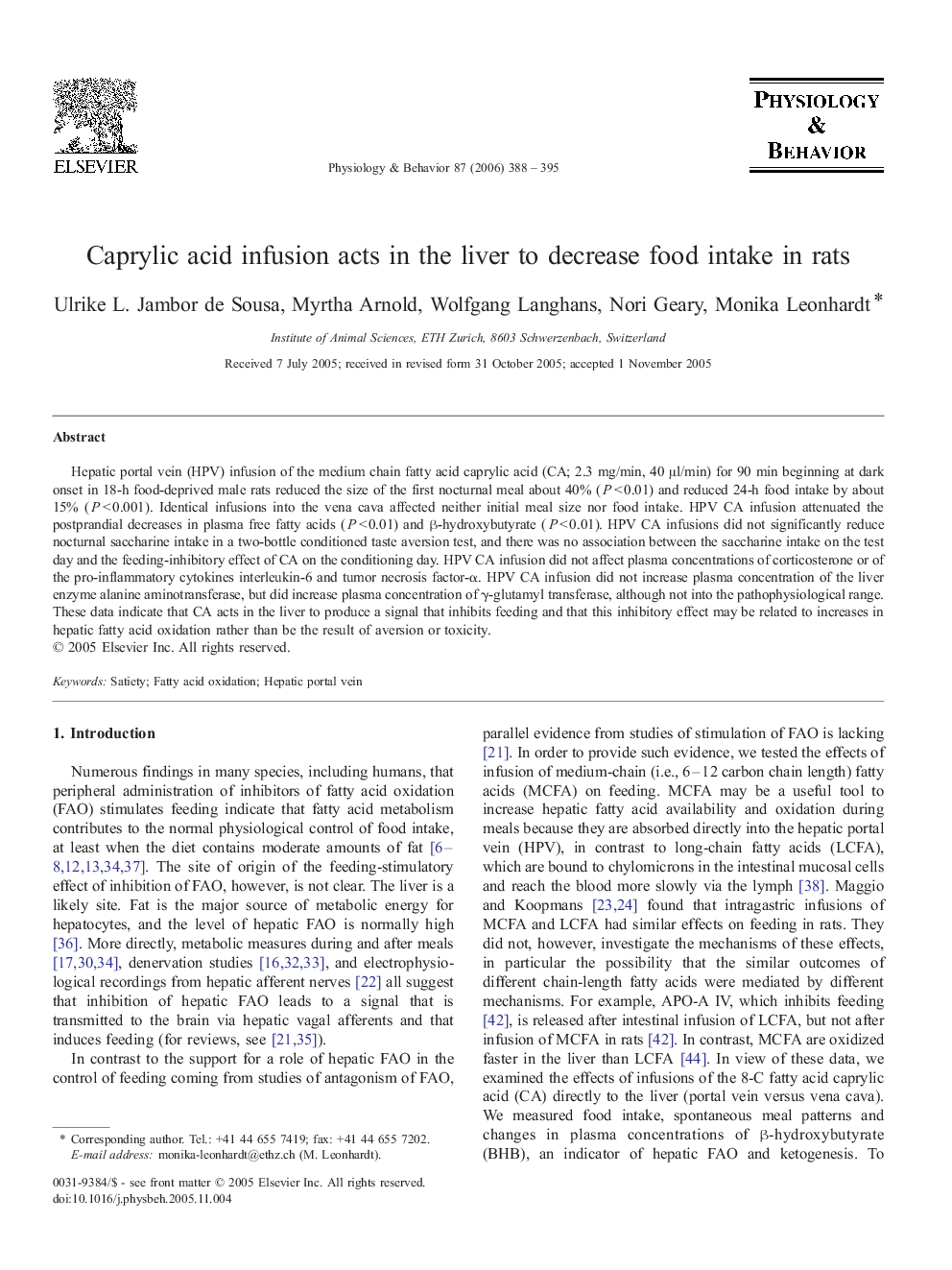| Article ID | Journal | Published Year | Pages | File Type |
|---|---|---|---|---|
| 2846525 | Physiology & Behavior | 2006 | 8 Pages |
Hepatic portal vein (HPV) infusion of the medium chain fatty acid caprylic acid (CA; 2.3 mg/min, 40 μl/min) for 90 min beginning at dark onset in 18-h food-deprived male rats reduced the size of the first nocturnal meal about 40% (P < 0.01) and reduced 24-h food intake by about 15% (P < 0.001). Identical infusions into the vena cava affected neither initial meal size nor food intake. HPV CA infusion attenuated the postprandial decreases in plasma free fatty acids (P < 0.01) and β-hydroxybutyrate (P < 0.01). HPV CA infusions did not significantly reduce nocturnal saccharine intake in a two-bottle conditioned taste aversion test, and there was no association between the saccharine intake on the test day and the feeding-inhibitory effect of CA on the conditioning day. HPV CA infusion did not affect plasma concentrations of corticosterone or of the pro-inflammatory cytokines interleukin-6 and tumor necrosis factor-α. HPV CA infusion did not increase plasma concentration of the liver enzyme alanine aminotransferase, but did increase plasma concentration of γ-glutamyl transferase, although not into the pathophysiological range. These data indicate that CA acts in the liver to produce a signal that inhibits feeding and that this inhibitory effect may be related to increases in hepatic fatty acid oxidation rather than be the result of aversion or toxicity.
